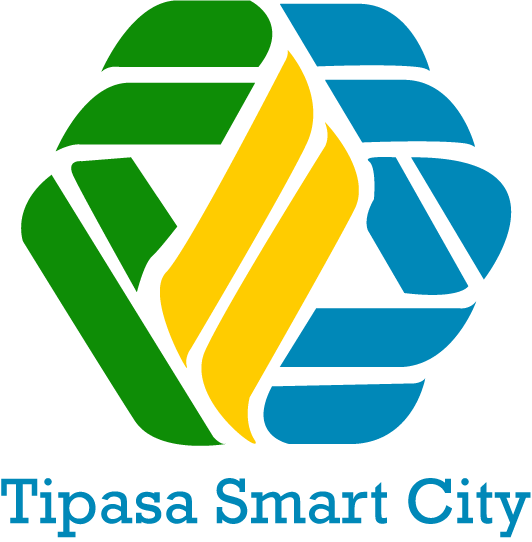
Distinguished guests
Prof. Dr. Mohamed BENBOUZID, IEEE Fellow University of Brest UMR CNRS 6027 IRDL – Institut de Recherche Dupuy de Lôme, Brest, France
Mohamed Benbouzid received his Ph.D. in electrical engineering from the Institut National Polytechnique de Grenoble, Grenoble, France, in 1994, and the Habilitation à Diriger des Recherches degree from the University of Amiens, Amiens, France, in 2000.

Following the completion of his Ph.D., he served as an Associate Professor of electrical engineering at the University of Amiens, Amiens, France. Since September 2004, he has been with the University of Brest, Brest, France, where he is a Full Professor of electrical engineering. Prof. Benbouzid is also a Distinguished Professor and a 1000 Talent Expert at the Shanghai Maritime University, Shanghai, China.
Prof. Benbouzid research interests and experience are primarily focused on electromechanical systems, including traction, propulsion, and renewable energy applications, with a particular emphasis on fault diagnosis, fault prognosis, and fault-tolerant control.
Prof. Benbouzid is an IEEE Fellow and a Fellow of the IET. He is the Editor-in-Chief of the International Journal on Energy Conversion and the Applied Sciences (MDPI) Section on Electrical, Electronics and Communications Engineering. He is a Deputy Editor for the IET Renewable Power Generation.
Mapping a Machine Learning Path Forward for Tidal Stream Turbines Biofouling Detection and Estimation
Durability of tidal stream turbines in a marine environment presents a significant challenge, largely due to the potential impact of biofouling. The accumulation of organisms like algae, mussels, and barnacles can affect the turbine shape and roughness, reducing its efficiency. While anti-corrosive materials can be used to minimize corrosion, the management of biofouling is much more complex. Although biofouling on ship hulls has been extensively researched, limited studies have been conducted on its effects on tidal stream turbines. Consequently, it is essential to develop a specific biofouling management and monitoring strategy that includes regular assessments and adjustments to maintain the desired level of biofouling control and ensure optimal turbine performance. Essentially, the strategy should aim to identify when the effects of fouling become significant enough to warrant removal and prevent degradation of tidal stream turbine performance over time.
In this context, this keynote proposes an overview of biofouling and its impact on tidal stream turbines, current techniques for detecting and estimating biofouling, recent developments, and challenges in the field, as well as several promising prospects for biofouling detection and estimation.
Prof. Merouane DEBBAH, director of the Khalifa University 6G center, Khalifa University, UAE
Mérouane DEBBAH is a researcher, educator and technology entrepreneur. Over his career, he has founded several public and industrial research centers, start-ups and is now Professor at Khalifa University of Science and Technology in Abu Dhabi and founding Director of the Khalifa University 6G center. He is a frequent keynote speaker at international events in the field of telecommunication and AI.

His research has been lying at the interface of fundamental mathematics, algorithms, statistics, information and communication sciences with a special focus on random matrix theory and learning algorithms. In the Communication field, he has been at the heart of the development of small cells (4G), Massive MIMO (5G) and Large Intelligent Surfaces (6G) technologies. In the AI field, he is known for his work on Large Language Models, distributed AI systems for networks and semantic communications. He received multiple prestigious distinctions, prizes and best paper awards (more than 35 best paper awards) for his contributions to both fields and according to research.com is ranked as the best scientist in France in the field of Electronics and Electrical Engineering. He is an IEEE Fellow, a WWRF Fellow, a Eurasip Fellow, an AAIA Fellow, an Institut Louis Bachelier Fellow and a Membre émérite SEE. His recent work led to the development of NOOR (upon it release, largest language model in Arabic) released in 2022 and Falcon LLM (upon its release, top ranked open source large language model) released in 2023. These two models have positioned the UAE as a global leader in the generative AI field.
Large Language Models for Telecom
Large Language Models (LLMs) have emerged as a transformative force, revolutionizing numerous fields well beyond the conventional domain of Natural Language Processing (NLP) and garnering unprecedented attention. As LLM technology continues to progress, the telecom industry is facing the prospect of its potential impact on its landscape. To elucidate these implications, we delve into the inner workings of LLMs, providing insights into their current capabilities and limitations.
We also examine the use cases that can be readily implemented in the telecom industry, streamlining numerous tasks that currently hinder operational efficiency and demand significant manpower and engineering expertise. Furthermore, we uncover essential research directions that deal with the distinctive challenges of utilizing the LLMs within the telecom domain.
Adel Mellit is Professor of Electronics at the Faculty of Sciences and Technology, University of Jijel, Algeria.
He received his PhD in Electronics from the University of Sciences and Technology (USTHB) Algiers in 2006. Adel Mellit’s research interests include the application of artificial intelligence (AI) techniques, the Internet of Things (IoT) and embedded systems (ES) in solar photovoltaic plants. He has authored and co-authored more than 180 papers in international peer-reviewed journals and conference proceedings, mainly on photovoltaic systems. He was the director of the Renewable Energy Laboratory at the University of Jijel, Algeria (2012-2022). Associate member at the ICTP Trieste (Italy) since 2007, subject editor of Energy Journal (Elsevier, Ltd.), and editor of the IEEE Journal of Photovoltaics (JPV).

TinyML and IoT for fault diagnosis and monitoring of photovoltaic plants: Challenges, recommendations and future directions
Given the widespread use of photovoltaic (PV) power systems, and to maintain their safety and avoid power losses, these plants must be carefully protected and monitored. Currently, several PV fault diagnosis and monitoring methods have been developed based on machine learning (ML) algorithms and the Internet of Things (IoT), which have proven their ability to diagnose and monitor faulty PV modules almost perfectly. However, to date, most developed methods for PV fault diagnosis and monitoring have not been experimentally validated in real time, and only a few laboratory-scale attempts have recently been made. This talk will focus mainly on the recent applications of embedded ML (TinyML) and IoT for the monitoring and fault diagnosis of PV plants. The feasibility, cost-effectiveness, complexity, and generalizability of such applications will be discussed in this talk. The conclusion of the talk will highlight the main challenges and recommendations for future directions in this field.
